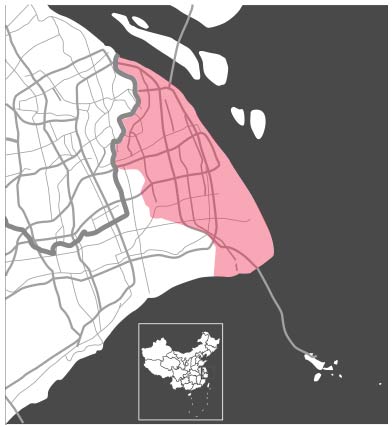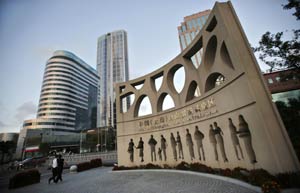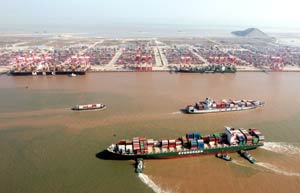Major measures such as 'negative list' will be extended to suitable areas
The nation will draw practical lessons from the development of the China (Shanghai) Pilot Free Trade Zone to reduce limits on foreign capital in the service and manufacturing sectors, senior government officials said.
Hu Zucai, deputy director of the National Development and Reform Commission, said that such practices as the "negative list" system and easier market access for foreign companies would be formalized and extended to suitable areas of China.

"The government will continue to open the markets for financial services, education, culture and healthcare for foreign capital to invest in China, and dismantle policy barriers involving nurseries, elder care, architectural design, auditing, logistics, e-commerce and other service businesses, as well as opening up the general manufacturing industry," said Hu.
When it comes to approving foreign investment, China has long applied approval procedures that emphasize economic security and the public interest, while also considering market access and capital account management
As of Aug 31 this year, 1,612 foreign companies had been established in the Shanghai FTZ, which adopted a system of "general registration" for foreign investment instead of the traditional approval mechanism.
About 91 percent of those companies obtained their business licenses through the new system.
Wang Shouwen, assistant minister of commerce, said the negative list approach has made it easier for foreign companies to enter the market, because businesses that are not on the negative list do not have to go through normal approval processes.
The negative list system is aimed at investment liberalization, trade facilitation, financial internationalization and the establishment of a clearer legal framework for administration.
To broaden market access and improve transparency for foreign companies, the 2014 negative list reduced the number of banned items from 196 to 139.
"As the negative list represents a new and internationally accepted model for the administration of foreign investment, China will enhance its supervision in the whole investment and operation process to prevent potential risk and maintain a healthy market order within the FTZ," said Wang.
The ministry is expanding a program that lets local government take a bigger role in dealing with more foreign companies to accelerate approval procedures in the FTZ. That system has been promoted at the national level to boost foreign investment and exports.
"Besides trading companies, the proportion of service and manufacturing businesses has risen fast within the FTZ," said Yu Guangzhou, head of the General Administration of Customs.
Yu said the FTZ's growing headquarters economy, cross-border e-commerce, global equipment maintenance service, financial leasing and cultural industry are driving economic growth in the Yangtze River Delta.
Total trade in the FTZ was 500 billion yuan ($81.7 billion) between January and August, customs figures show.
Eager to create market growth points, the customs copied 14 innovative services from the FTZ nationwide in the first half of 2014.
 |
 |
| FTZ official removed, Xinhua says |
|
